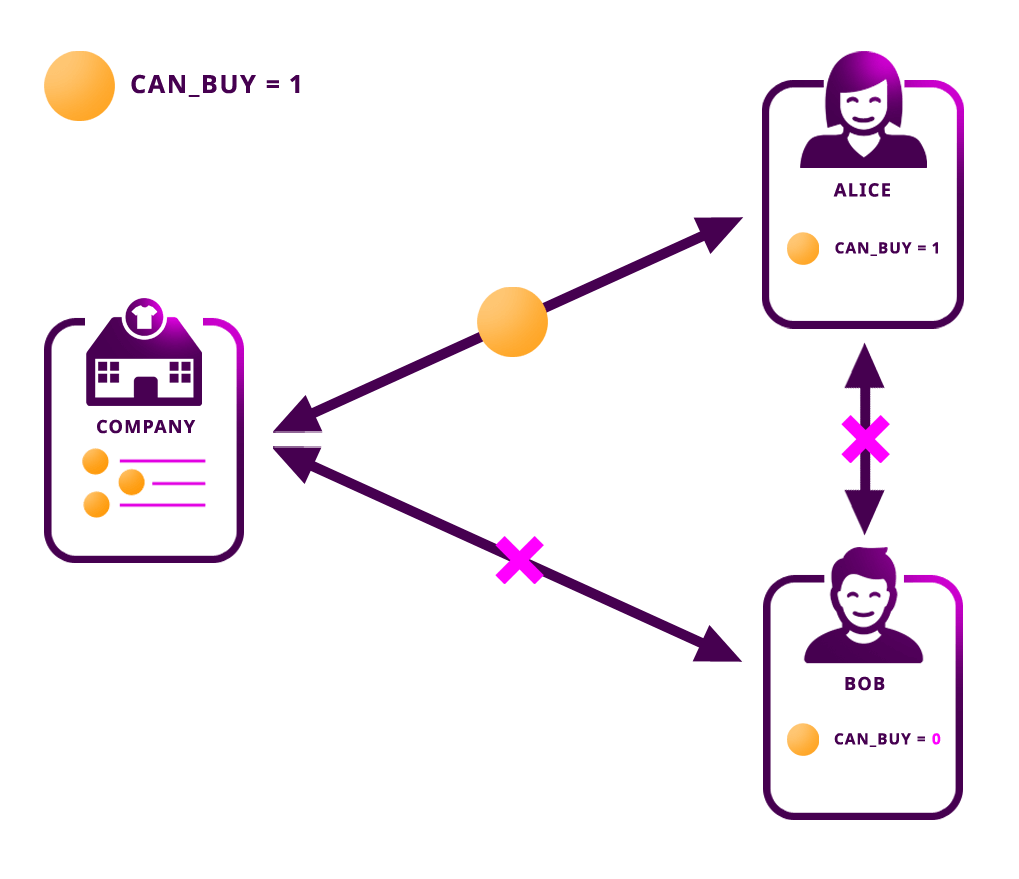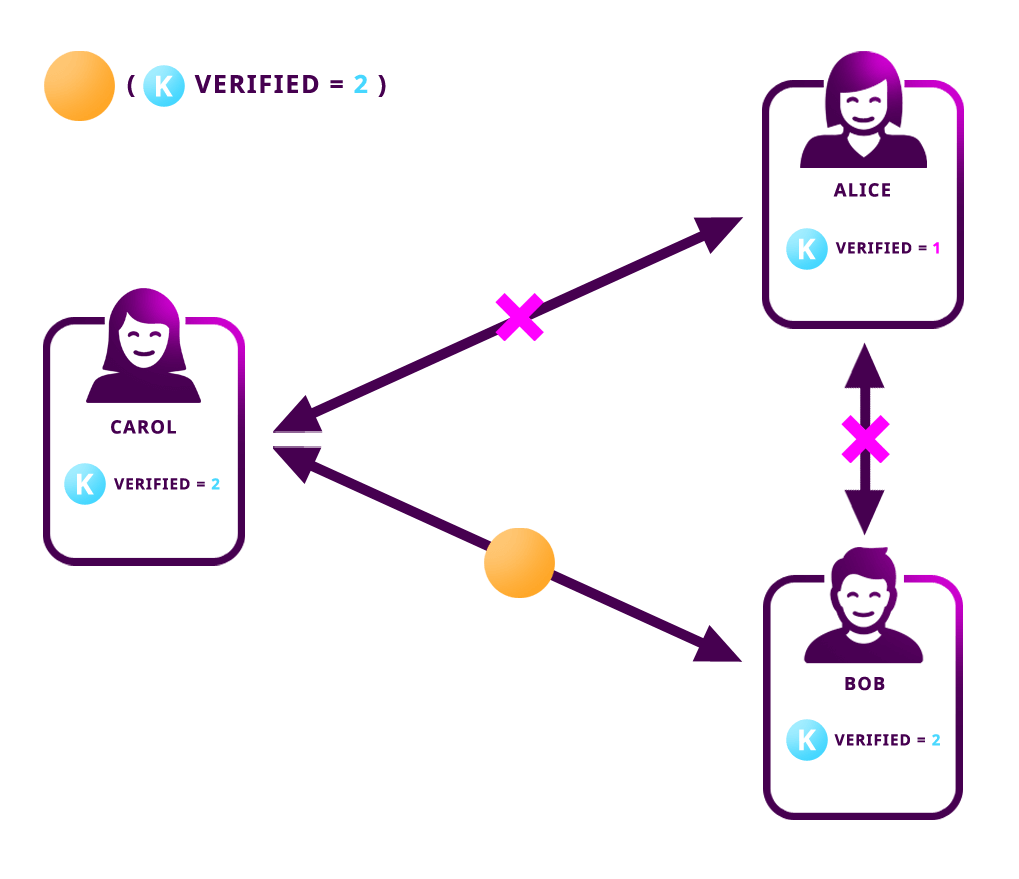Mosaic restrictions allow mosaic creators to decide which accounts can transact with the asset.
This feature has been specifically tailored for Security Token Offerings (STO). In contrast to the unregulated tokens that were introduced through ICOs, security tokens are blockchain based representation of value that is subject to regulation under security laws, and thus need a way to bypass blockchain autonomy.
Not all the mosaics of a given network will be subject to mosaic restrictions.
The feature will only affect those to which the issuer adds the restrictable property explicitly at the moment of its creation.
This property appears disabled by default, as it is undesirable for autonomous tokens like the public network currency.
Note
A mosaic only supports the mosaic restrictions feature if the restrictable property has been set to true at its creation.
Mosaic restrictions are editable over time, empowering the mosaic creator to control who can send and receive the mosaic as needed.
The mosaic global restrictions are the network-wide rules that will determine whether an account will be able to send or receive a given mosaic.
One mosaic can handle up to 20 global restrictions, being this parameter configurable per network.
A MosaicGlobalRestrictionTransactionV1 is composed of:
Property |
Type |
Description |
|---|---|---|
Mosaic Id |
MosaicId |
Identifier of the affected mosaic. The mosaic creator must be the signer of this transaction. |
Restriction Key |
uint64 |
Restriction key. |
Restriction Value |
uint64 |
Restriction value. |
Restriction Type |
uint8 |
Type of constraint to apply. For example, the restriction value should be equal (EQ). See more restriction types. |
Only accounts tagged with the key identifiers and values that meet the conditions will be able to execute transactions involving the mosaic.
Additionally, the mosaic creator can define restrictions that depend directly on global restrictions set on another mosaic—known as reference mosaic. The referenced mosaic and the restricted mosaic do not necessarily have to be created by the same account, enabling the delegation of mosaic permissions to a third party.
Enabling accounts to transact with the token is similar to the process of adding elevated permissions to a user in a company computer network.
The mosaic creator can modify the permissions of an account by sending a mosaic restriction transaction targeting the account address. The MosaicAddressRestrictionTransactionV1 is composed of:
Property |
Type |
Description |
|---|---|---|
Mosaic Id |
MosaicId |
Identifier of the affected mosaic. The mosaic creator must be the signer of this transaction. |
Target Address |
address |
Affected address. |
Restriction Key |
uint64 |
Restriction key. |
Restriction Value |
uint64 |
Restriction value. |
If the conditions match with the appropriate values set in the global restrictions, the account will be able to transact with the mosaic.
Otherwise, the account needs to request the mosaic creator to be granted elevated permissions or wait until the global restrictions are changed.

ComfyClothingCompany creates the mosaic comfyclothing.shares.
For regulatory reasons, the company wants only the participants that have passed the KYC process to buy and transact the asset.
Thus, the company adds the restriction tier {comfyclothing.shares, Can_Buy, EQ = 1} to the mosaic comfyclothing.shares.
Alice, a potential investor, is interested in investing in ComfyClothingCompany so she passes the KYC process.
Once Alice has been verified, the company tags Alice’s account with the MosaicAddressRestrictionTransaction {comfyclothing.shares, Alice, Can_Buy, 1}.
Alice can now buy comfyclothing.shares and start transacting it with other accounts.
Bob, on the other hand, is not be able to buy or even receive the asset because he is not verified and tagged accordingly.

Following the previous example, ComfyClothingCompany delegates the KYC process to a company specialized in KYC & AML.
The KYC provider registers a mosaic named kyc and adds the mosaic the global restriction {kyc, Is_Verified, EQ = 1} to the mosaic.
The KYC provider also defines the following permission tiers:
Key |
Operator |
Value |
Description |
|---|---|---|---|
Is_Verified |
EQ |
1 |
The client has issued a valid passport. |
Is_Verified |
EQ |
2 |
The client has issued a valid proof of address and passport. |
ComfyClothingCompany decides that only accounts with the restriction { kyc::Is_Verified, 2} should be enabled to transfer cc.shares.
For this reason, the company adds the global mosaic restriction {comfyclothing.shares, kyc::Is_Verified, EQ = 2}.
The KYC provider encounters 3 potential investors:
Alice provides a valid passport but no proof of address. The KYC provider awards Alice’s account with the mosaic restriction {kyc, Is_Verified, 1}.
Bob provides a valid passport and proof of address. The KYC provider awards Bob’s account with the mosaic restriction {kyc, Is_Verified, 2}.
Carol provides a valid passport and proof of address. The KYC provider awards Carol’s account with the mosaic restriction {kyc, Is_Verified, 2}.
Now, Bob and Carol will be able to buy and send the comfyclothing.shares units to each other.
Nevertheless, Alice—who has not provided a valid proof of address—will not be able to receive shares.